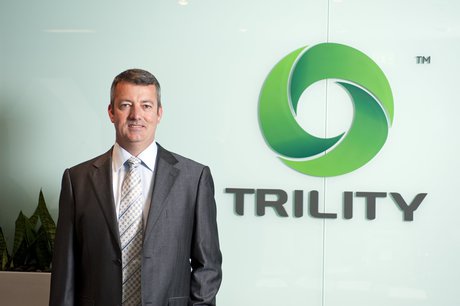Trends and challenges facing water utilities in Australia

Water utilities have a well-deserved reputation for being quiet achievers.
They are constantly being challenged to adapt to climate variability and meet sustainability targets. They must ensure they deliver the highest quality service but always within ‘value for money’ parameters expected by their customers.
Behind the scenes they work exceptionally hard and as efficiently as possible to deliver guaranteed, high-quality water direct to the consumer at an affordable price.
And, in keeping with their reputation of being quiet achievers, much of this outstanding work can go unnoticed. This is particularly true for wastewater plants where the increased use of technologies such as energy recovery and biological processes are really quite remarkable.
Energy recovery units have become more affordable and smaller, which means more are being implemented, especially on wastewater plants using biogas to generate power. As advanced biosolid process technologies mature, they too will become widely used in Australia.
However, it has been the advances in SCADA control and communication systems that have possibly had the most significant impact on water utilities over the past couple of years.
Today, we can monitor and measure parameters, leakage rates and quality of water over greater distances with reduced costs. We can run treatment plants remotely, improve load distribution, maximise the use of lower power tariffs, predict abnormal events and implement fixes before problems occur.
All of this was simply not possible before we had good control systems. This has made a remarkable difference to the management of the entire water process.
We can trend just about everything on the plant and this is helping us drive overall efficiency. There is also a continuous push for energy efficiencies and optimisation of chemical usage in the treatment plant.
It’s rare to see extraordinary leaps in water technology; instead we typically see incremental advances to the efficiency of designs of some water technology products.
Great advances in the energy recovery units on desalination plants have meant those constructed in Australia are highly efficient, with energy consumption relatively low by world standards.
There are a variety of opinions, especially from the public, on the positives and negatives of different water sources. I believe the public will come to appreciate desalination plants in the future, when the inevitable drought returns and desalination plants provide the one source of water that is guaranteed.
However, we don’t want to rely too heavily on one source of water. Desalination has to be part of an overall mix.
In terms of climate variability, we are seeing more frequent floods and severe weather events. Water utilities have to adapt in order to mitigate the impact of these. This can be quite a challenge and may involve a number of mitigation techniques.
With an increased prospect of future flooding, we are seeing a renewed appreciation of the functions of dams as they serve a dual purpose - they store water and can also provide flood mitigation. But, this creates another challenge - who pays and who is responsible?
One important message not always communicated is that when a city runs out of water, it is not possible to ship in enough water to keep the city going.
Climate variability is resulting in more frequent changes, yet there is no quick solution. The water industry needs long-term investment and this is a major challenge.
Ultimately, the best outcome is the result of a trade-off and a mix from multiple sources to ensure security of water for Australia’s future.
Open EOI released for waste-to-energy procurement process
The proposed facility will be located within the Advanced Resource Recovery Centre (ARRC)...
Liquid metal to 'harvest' clean hydrogen from water
Researchers have created a process using liquid metals, powered by sunlight, that can produce...
How sustainability is shaping network strategy
For Australian enterprises entering 2026 planning cycles, sustainability is no longer sitting...








